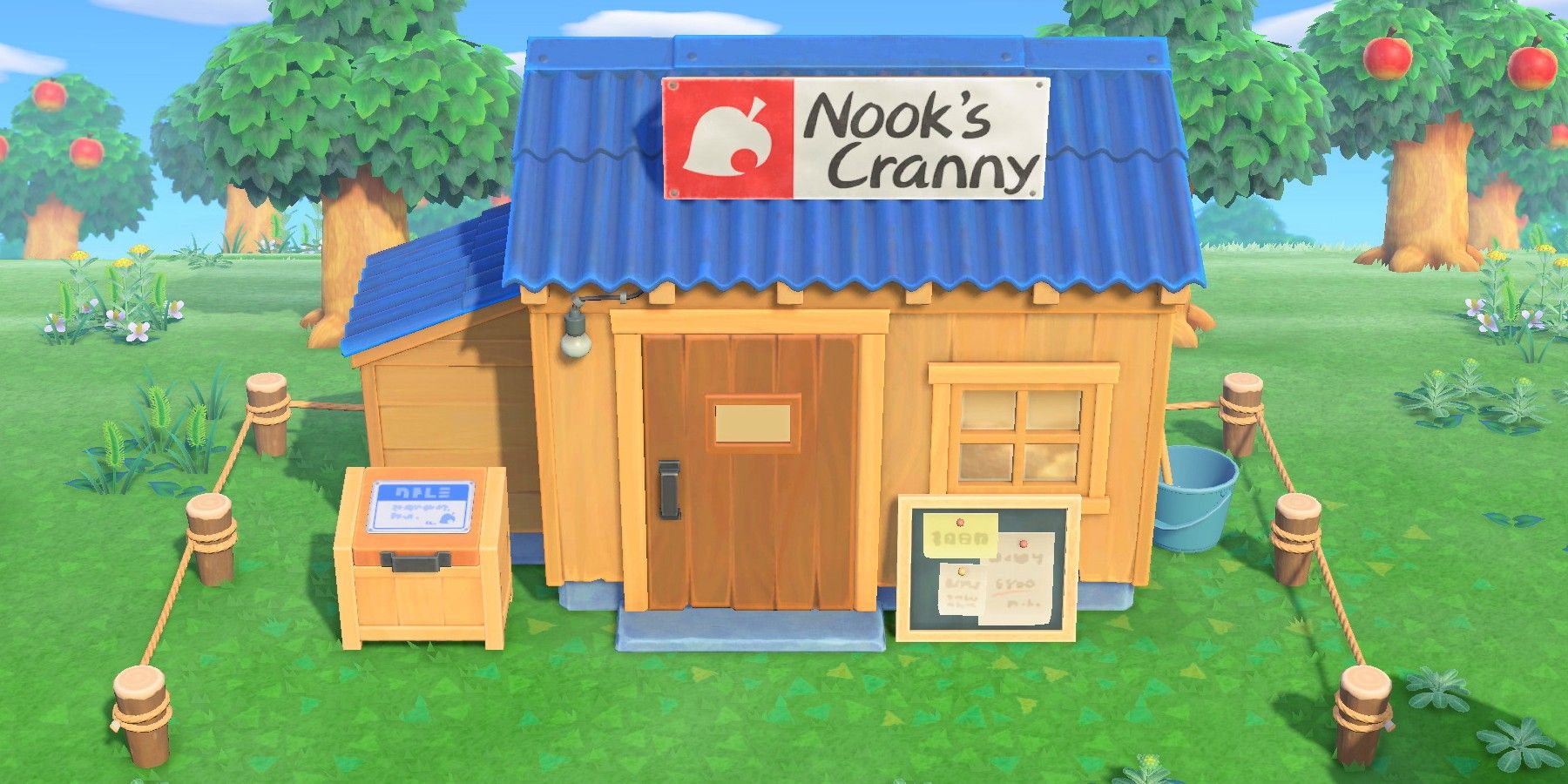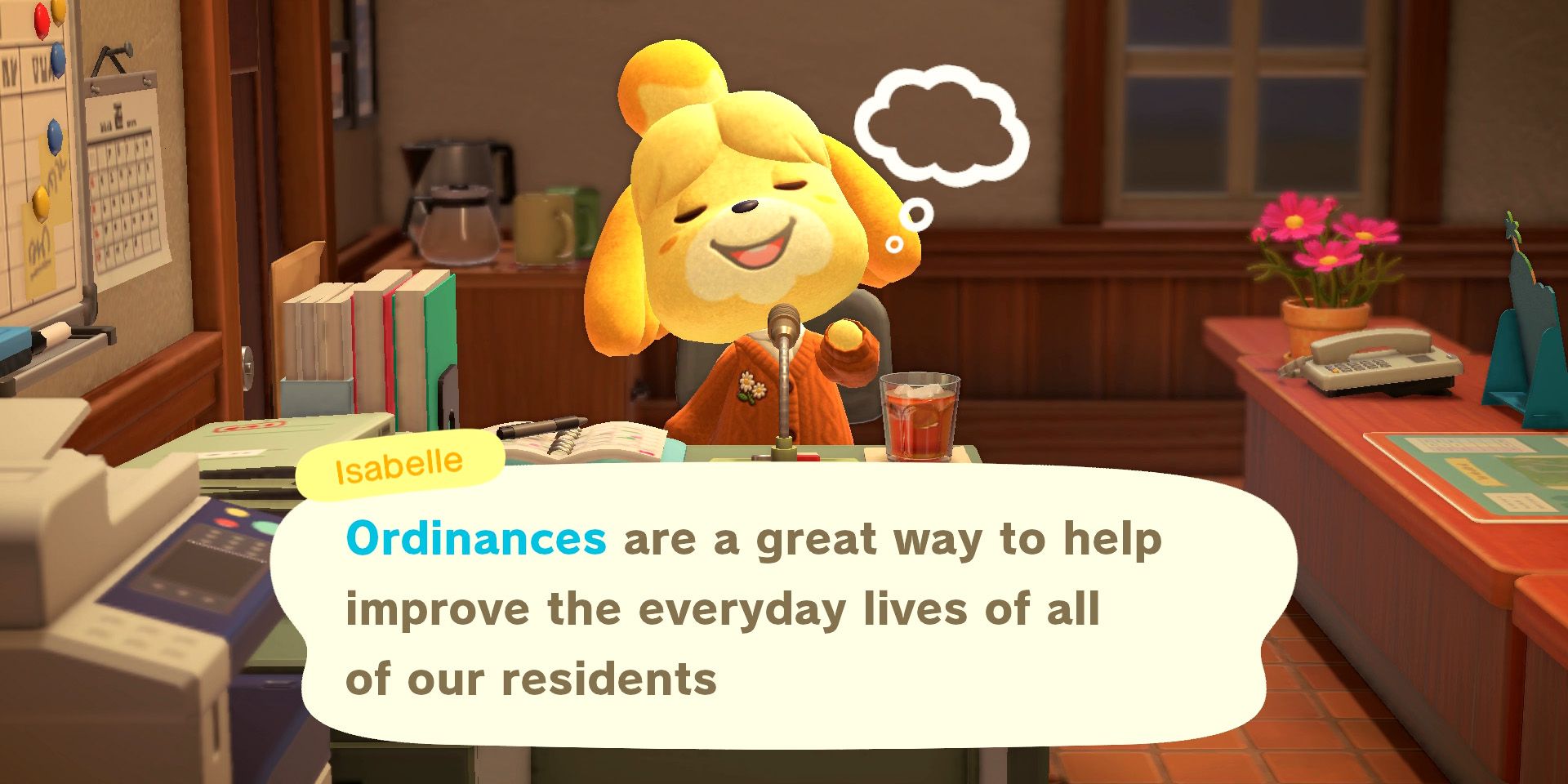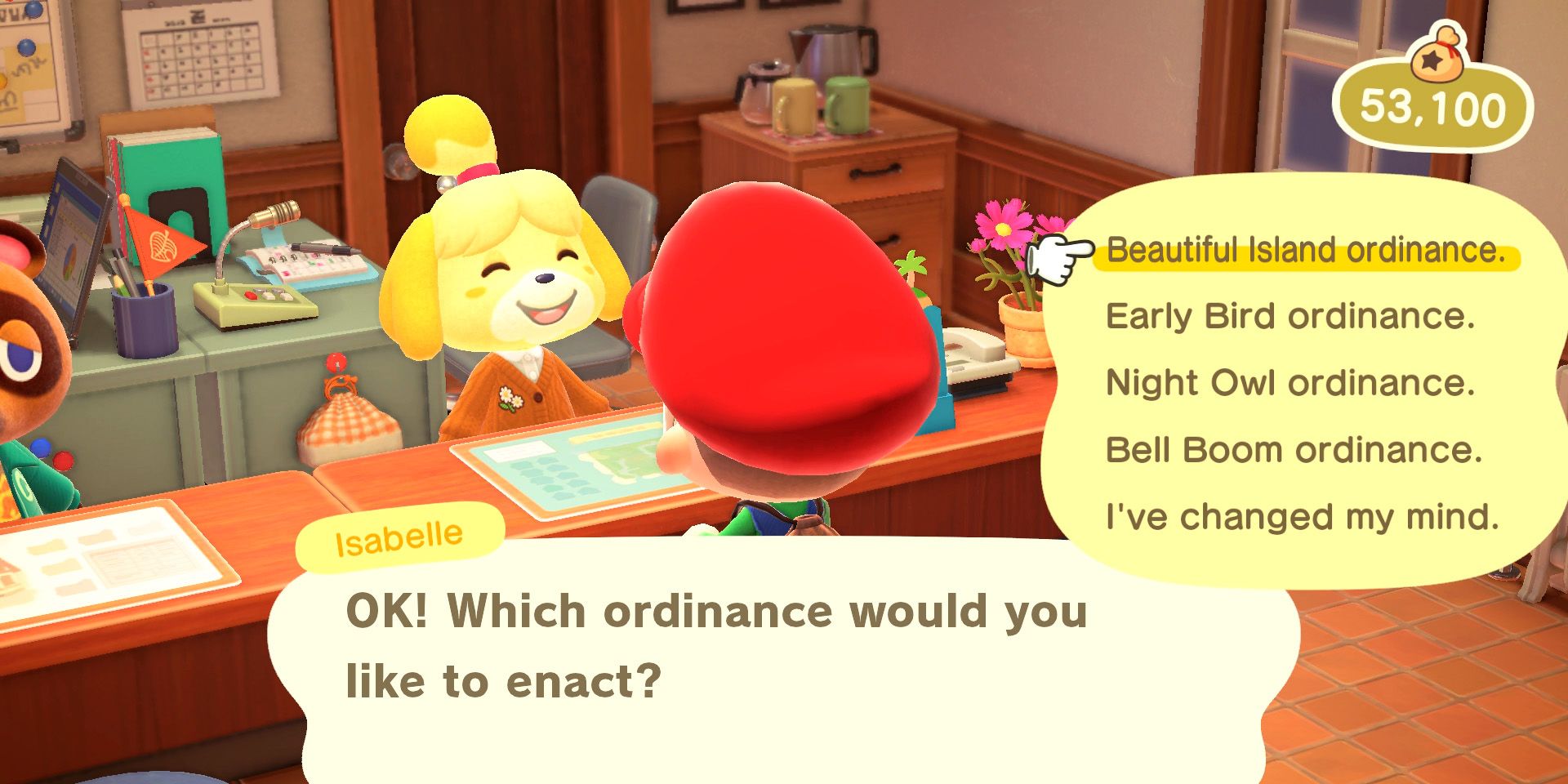Animal Crossing: New Horizons November 5 update brings a ton of new content to the game. From expanded player storage to a bunch of new customization options, Animal Crossing players will have plenty to keep them occupied and interested in the game for the foreseeable future. While Animal Crossing: New Horizons was one of the big hits of 2020, it could be set to have a rejuvenated player base this holiday season as well.
There’s a lot for players to check out when they jump back into Animal Crossing: New Horizons, but the new Island Ordinances may be the most intriguing. Animal Crossing: New Leaf also had Ordinances, which could be carried out by the Mayor of the town. These Ordinances set rules for villagers to follow and can be used to dictate the advantages players will receive. In particular, New Horizons' Bell Boom Ordinance could prove useful to players, although it will come at a cost.
What are Animal Crossing: New Horizons Ordinances?
The Animal Crossing: New Horizons 2.0 update was released for some players early on November 3, introducing a bunch of new content to the game. Included within this content were Island Ordinances, which give players a lot more control over the way their islands are run. This is because Island Ordinances in Animal Crossing: New Horizons are actually a selection of rules that can be used to make the players' island suit their preferred style. These new rules could help to eliminate some of the frustrations that have existed around Animal Crossing: New Horizons, but they do come at a cost.
Animal Crossing: New Horizons players can select from four Island Ordinances, which can be changed at any time. To select or change an Island Ordinance in Animal Crossing: New Horizons, players must have 20,000 Bells, so a decision on Ordinances should not be made lightly. As with most of the goings-on around players New Horizons island, to activate Ordinances, players must speak to Isabelle and select “Review Island Features” and “Discuss Ordinances”. The four Island Ordinances to choose from in Animal Crossing: New Horizons are Beautiful Island Ordinance, Early Bird Ordinance, Night Owl Ordinance, and Bell Boom Ordinance. Each of these Ordinances fulfil their own role and may prove of use to Animal Crossing players depending on their playstyle and time of day they play the game.
Why Animal Crossing: New Horizons’ Bell Boom Ordinance is Worth Using
Much of the Island Ordinances’ usefulness depends on how the player approaches the game, but the Bell Boom Ordinance may be useful to all New Horizons players. The Bell Boom Ordinance, in the words of Isabelle, “would cause the cost of goods on the island to go up, but so would the amount folks get from selling!”. This is a double-edged sword, as of course the cost of goods going up on the island may appear daunting, but with the frequency that players sell items on Animal Crossing: New Horizons, the selling price should more than make up for it in the long run. With the ability to change Island Ordinances In New Horizons at any time, the risk of such a rule is limited.
Other Animal Crossing: New Horizons Ordinances include the Beautiful Island Ordinance, which will make other villagers pitch in with gardening, and the Night Owl Ordinance and Early Bird Ordinance, which alter active times of day. These three Ordinances will be useful depending on the player, but the Bell Boom Ordinance should be of use to all Animal Crossing players. Along with altering buying and selling prices, it will also increase the size of the premium item list in stores, and despite buying prices increasing, house prices will stay the same. This makes the Bell Boom ordinance the perfect Ordinance for players looking to pay off their mortgage in Animal Crossing or indulge in the finer things in life on their islands.
Animal Crossing: New Horizons is available now for Nintendo Switch.



